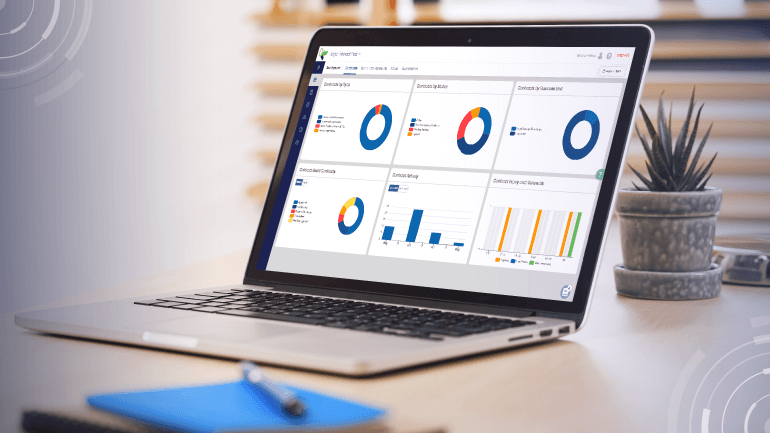
Turning your Contract Repository into a Smart Contract Database
Contracts are an essential part of business operations, and managing them efficiently is critical to success. However, the traditional way of managing contracts can be cumbersome and time-consuming, leading to errors and missed deadlines. One way to streamline contract management is by turning your contract repository into a smart contract database. In this blog, we will discuss the benefits of doing so and how it can help you optimize your contract management process.
By implementing an AI-powered contract management system, you can do more than simply store your documents. You can develop a smart contract database that enhances your business intelligence and strategic decision-making capabilities. Such a system offers a wide range of benefits beyond just document storage.
A smart contract database centralizes and arranges all your contracts in a single location, providing swift and robust search and discovery functionality. This enables you to quickly locate and access your agreements.
With an advanced contract management system, you can gain complete visibility into all of your contracts, regardless of their complexity. This system offers comprehensive insight into your contracts, allowing you to easily access and monitor every detail of your contractual agreements.
What is a Smart Contract?
A smart contract is a self-executing agreement that is programmed to execute automatically when certain conditions are met. It is a computer program that can enforce the rules and obligations of a contract without the need for intermediaries such as lawyers, banks, or other third parties. Smart contracts are built on blockchain technology, which provides a transparent, secure, and tamper-proof environment.
Why Turn Your Contract Repository into a Smart Contract Database?
Streamlined Contract Management: By turning your contract repository into a smart contract database, you can automate the contract management process. This can help you streamline the process, reduce manual errors, and ensure compliance with contractual obligations.
Increased Efficiency: Smart contracts can eliminate the need for intermediaries, which can significantly reduce the time and cost associated with contract management. With automated contract execution, you can reduce the need for manual intervention, which can save time and increase efficiency.
Improved Contract Performance: With smart contracts, you can set up rules and conditions that need to be met for the contract to be executed. This can help you ensure that all parties comply with the terms of the contract, leading to better contract performance and outcomes.
Enhanced Security: Smart contracts are built on blockchain technology, which provides a secure and tamper-proof environment. This can help you protect your contracts from unauthorized access and fraud, leading to enhanced security and trust.
How to Turn Your Contract Repository into a Smart Contract Database?
Identify Contracts that Can be Automated: The first step in turning your contract repository into a smart contract database is to identify contracts that can be automated. Look for contracts that have well-defined rules and conditions, and where parties can agree on the terms of the contract.
Define the Rules and Conditions: Once you have identified the contracts that can be automated, you need to define the rules and conditions that need to be met for the contract to be executed. This includes identifying the parties involved, the terms of the contract, and the triggers that will initiate the contract execution
Program the Smart Contracts: After you have defined the rules and conditions, you need to program the smart contracts. This involves writing the code for the contract and uploading it to the blockchain network. You can use existing blockchain platforms or hire a developer to create a custom solution.
Test and Deploy: After the smart contracts have been programmed, you need to test them to ensure that they work as intended. Once you are satisfied with the results, you can deploy the smart contracts and start using them to manage your contracts.
Conclusion
Turning your contract repository into a smart contract database can help you streamline contract management, increase efficiency, improve contract performance, and enhance security. By automating contract execution, you can reduce the time and cost associated with contract management and ensure compliance with contractual obligations. With the right approach, you can turn your contract repository into a smart contract database and optimize your contract management process.
A contract lifecycle management (“CLM”) platform that does not make use of artificial intelligence (“AI”) is essentially just a digital storage room for contracts or a contract repository. If you do not currently have a cloud-based contract management system, it is imperative that you obtain one as soon as possible. This will ensure that your contract management process is optimized and streamlined.



